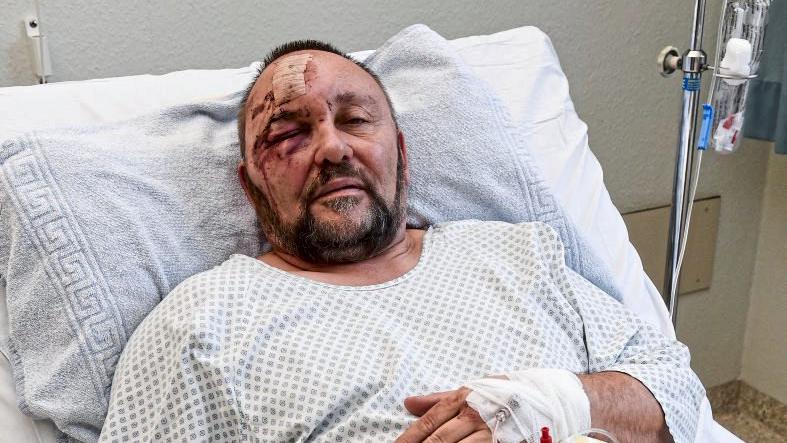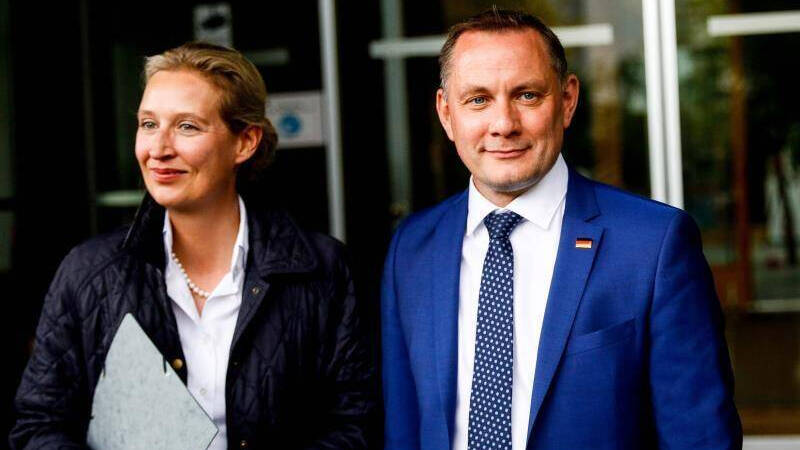By Álvaro Peñas
Alice Weidel, parliamentary group leader, and Tino Chrupalla, co-chairman, have been elected by the activists of Alternative für Deutschland (AfD) to lead the party in the upcoming federal election campaign. Their election came as no surprise as they were the favorites, but the difference in votes with the other two candidates, Joana Cotar, member of the Bundestag for Hesse, and Joachim Wundrak, former Bundeswehr general in Lower Saxony, came as a surprise. Just over 15,000 AfD members took part in the vote, almost half of the party’s 32,000 members, and the result was 71% of the votes for the Weidel / Chrupalla duo, who represent the national-conservative faction, compared to 27% for their competitors, the candidates chosen by the party’s co-chair,
This remarkable difference in support is a sign that AfD supporters have opted for the more patriotic line and for ending the internal divisions that were on the verge of causing a split in the party. At the last AfD party conference in November last year, the party was unable to overcome a split that had a negative impact on the organization in the last elections. In the state elections in Rhineland-Palatinate and Baden-Württemberg, the party received no more than 10 percent of the vote, as in previous elections. In an interview with Steffen Kotré, the MP said that the party was still divided. The landslide victory of the national conservatives, the disbanded “wing”, the hard-nosed faction of the party around Björn Höcke, could put an end to this rift, at least temporarily. Weidel said that it was now a matter of “going into the election campaign together”, while Chrupalla spoke of closing ranks and that the vote had made clear the membership’s will to end the intra-party debate, “this result speaks for itself”. Meuthen congratulated the winners and wished them every success in “representing the AfD”. The two losing parties have also shown their willingness to unite the party. “I look forward to actively supporting both of them in the coming months. Sometimes you win, sometimes you lose, the most important thing is to get ahead. Together for our AfD and for our country “, said Cotar. For his part, Wundrak said the election was conducted “with decency and mutual respect” and that it was time to look forward “to lead a successful election campaign for the AfD and for the interests of Germany and the German people”.
The election campaign looks very complicated for the AfD, which is currently the third political force in the Bundestag, because according to all surveys, the Greens are currently the leading party in Germany. In addition, due to the cordon sanitaire imposed by all other parties, the AfD has no chance of power and could thus fall victim to the duel between the CDU / CSU and the Greens, as their voters could prevent Annalena Baerbock from becoming chancellor by changing the ballot. In nationwide polls, the party is around twelve percent, very close to its 2017 election results, but has so far failed to address the great dissatisfaction that has arisen as a result of the government’s measures in dealing with the coronavirus crisis.
But in addition to the complicated political situation, the AfD is also exposed to systematic harassment. From above by the protection of the constitution and from below by violence against their headquarters and activists by antifa groups (the AfD records more attacks than all other German parties combined). One day before the results of the internal party vote were announced, the public prosecutor’s office in Mühlhausen, Thuringia, confirmed that the house of AfD state chairman Björn Höcke had been searched by the authorities for alleged “hate speech” in social media against NGO activist Carola Rackete, who was von Höcke was accused of collaborating with human trafficking networks.

Earlier this year, German authorities classified the entire AfD as a threat and an extremist political grouping, which allowed them to monitor all communications by party members, including emails and phone calls, even if they were unrelated to politics. It sounds like something from the movie “The Lives of Others” about the Stasi spying on East Germans, but it’s real and targets Germany’s third largest political party and the only one that defies the globalist agenda. This decision is currently on hold pending a court decision, although several federal states, such as B. Thuringia, continue to monitor AfD members. Interestingly, the extreme surveillance of AfD members and activities does not prevent acts of violence against the party, nor does it lead to the arrest of its left-wing attackers. Germany, like the European Union, is moving further and further away from the values of democracy and freedom of expression, which it claims to be defending.
This article was first published by EL CORREO DE ESPAÑA , our partner in the EUROPEAN MEDIA COOPERATION.

